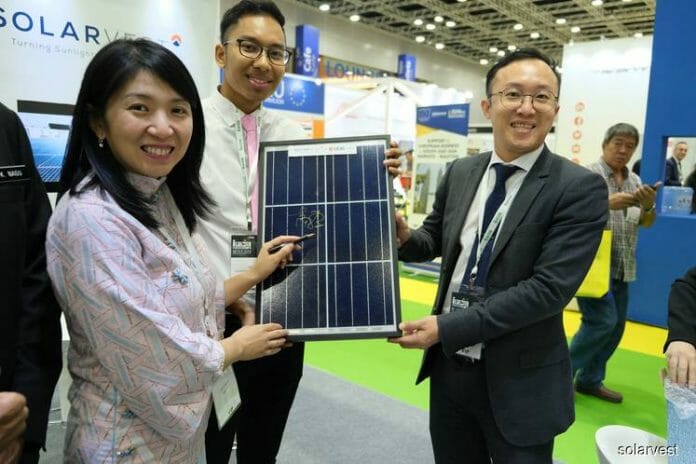By Davis Chong Chun Shiong, Group CEO Solarvest Holdings Berhad,
Over the years, the Government of Malaysia has been very supportive in driving the growth of renewable energy (RE) sector in Malaysia by introducing incentives and programmes such as the Net Energy Metering, Large-Scale Solar programme, Green Technology Financing Scheme, Green Investment Tax Allowance, etc.
While these efforts have driven exponential growth and created a multi-billion industry with thousands of jobs opportunities, there are still much more room for growth until we reached the 20 percent RE- mix goal by 2025. There are still thousands of Megawatts capacity and millions of building rooftop yet to be unlocked.
We are encouraged that RE remains a key theme in the recent stimulus package as well as the sustainability living theme echoed by Finance Minister, Tengku Datuk Seri Zafrul Abdul Aziz amid this challenging times.
Our wish is that the support for RE industry continues in Budget 2021 to enhance the uptake of solar PV installations across the residential homes, commercial and industrial as well as large-scale solar segment.
Our Wishlist includes:
1. Residential: Individual tax rebates and expand eligibility for financing options.
Individual tax rebates of up to RM10,000 for those who install solar PV panels on house rooftops. This will lower the initial up-front cost and enhance the return-on-investment (ROI) period for home owners.
Expand eligibility of Green Technology Financing Scheme (GTFS) 2.0 which is only currently available to companies, to also include residential owners. Under GTFS 2.0, applicants are entitled to a 2% rebate per annum on interest taken on bank loans for the installation of solar PV panels.
For home owners applying under GTFS 2.0, the minimum processing fee should be lowered to RM1,000 from the current RM8,000.
Tax incentives and special quota allocated for property developers to install solar PV panels for their home projects. Having property players on board will accelerate growth in the residential segments.
2. Commercial and Industrial: Tax allowances and incentives
Extend the Net Energy Meeting (NEM 2.0) programme which is expiring this coming 31 December 2020 with ~160-megawatt quota remaining.
We hope NEM 3.0 will be a reality and the quota allocated will be increased to 1,000MW on the back of the rising demand of solar energy among the private sector.
Over the years, the programme contributed hundreds of megawatts of solar energy to the grid. The programme has attracted more private solar investors and contributed to a spike in adoption across the commercial (quota allocated: ~72MW in 2020 vs ~7.5 in 2019) and industrial segments (quota allocated:~181MW in 2020 vs ~20MW in 2019).
Incentives for government-linked companies and allowances for higher learning institute for solar adoption.
The Stimulus Package has allocated ~400MW for high learning institute and we wish the Budget 2021 will also take in consideration for such quota. We believe the adoption of solar energy in learning institutions will not only save electricity bills but also to promote the sustainability cause and to introduce the importance of the Environmental, Social and Governance (ESG) right to the roots.
More incentives for solar leasing activities to spur investment interest in solar industry.
We hope the 10-year 70% income tax exemption for solar leasing activities will follow through as it has definitely help spur interest and encourage more commercial and industrial participation in the adoption of renewable energy. We also hope that more programmes such as Supply Agreement of Renewable Energy (SARE) to promote power purchase agreements (PPA) among the corporates to drive higher investments and adoption of the solar industry.
3. Large-scale solar: Programmes and incentives
Continuous roll out of large-scale solar programmes such like LSS@ Mentari that offers 1,000MW quota worth ~RM2 billion to stimulate growth. While the programme has followed through since LSS1, the awarding schemes differ each year. It will be great if there will be some standardization in the distribution of quotas and the scale of the programme.
We hope the upcoming LSS programme will adopt similar structure and scale of LSS@Mentari where the distribution of projects is more spread out and enables more industry players to benefit from this programme.









